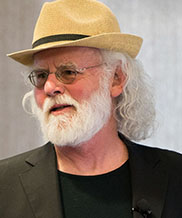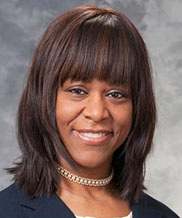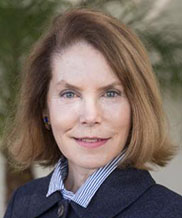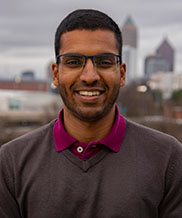Immersion for Learning
Global experience with virtual environments has skyrocketed in 2020. “Shelter-in-place” is our local term for working, learning and socializing remotely. Regardless of how it’s labeled, we have dramatically increased the proportion of communications and interactions that are NOT face-to-face. We’ve used virtual presence to share screens, to create meaning. We’ve learned new cues for taking turns in telepresence, and we’ve tamed the nests of cords and accessories that power and personalize our various devices.
In this virtual colloquia webinar series we will use existing and emerging technologies to leverage experiences and insights from the mediaX membership community of scholars, researchers, instructors and learners. This session will focus on LEARNING.
July 16, 9:00am PACIFIC
IMMERSION FOR LEARNING
Roy Pea – Leveraging Distributed Intelligence
Carla Pugh – Quantitative Predecessors to Human Actions
Jill Helms – Not for the Faint of Heart: Creating an Environment for Learning in Virtual Spaces
Aditya Vishwanath – The Many Futures of Virtual Learning Environments
Club Cardinal – Connecting for Inspiration and Support (8:40a)
Additional Virtual Webinar Sessions
July 13, 5:00pm PACIFIC
IMMERSION FOR COLLABORATION
Nick Haber – AI for Affect, Personalization and Reciprocity: Modeling the Self and the Other
Renate Fruchter – Attention and Engagement for Teamwork
Ivan Davies – Players First: The Responsibility & Opportunity of Multiplayer Video Games Today
July 14, 12:00pm PACIFIC
IMMERSION FOR DISCOVERY
Chris Chafe – Diagnosing Acoustic Latency: Human Perception of Milliseconds
Allison Okamura – Engineering for Tactile/Haptic Thresholds
Ge Wang – The Artful Design of Immersion
Club Cardinal – Connecting for Inspiration and Support (11:40a)
Presenters

Roy Pea is David Jacks Professor of Education & Learning Sciences at Stanford University, School of Education, and Computer Science (Courtesy), and Director of the H-STAR Institute. His studies and publications in the learning sciences focus on advancing theories, research, tools and social practices of technology-enhanced learning of complex domains, including his role as Co-Director and Co-PI of the NSF-funded LIFE Center, which seeks to develop and test principles about the social foundations of human learning in informal and formal environments with the goal of enhancing human learning from infancy to adulthood. He is also founder and Director of Stanford’s PhD program in Learning Sciences and Technology Design. He is co-author of the 2010 National Education Technology Plan for the US Department of Education, co-editor of Video Research in the Learning Sciences (2007), and co-author of the National Academy of Sciences book: How People Learn (2000). He is a Fellow of the National Academy of Education, Association for Psychological Science, the American Educational Research Association, and the Center for Advanced Study in the Behavioral Sciences.

Carla Pugh is Professor of Surgery at Stanford University School of Medicine. She is also the Director of the Technology Enabled Clinical Improvement (T.E.C.I.) Center. Her clinical area of expertise is Acute Care Surgery. She is the first surgeon in the United States to obtain a PhD in Education. Her goal is to use technology to change the face of medical and surgical education. Her research involves the use of simulation and advanced engineering technologies to develop new approaches for assessing and defining competency in clinical procedural skills. Dr. Pugh holds three patents on the use of sensor and data acquisition technology to measure and characterize hands-on clinical skills. Currently, over two hundred medical and nursing schools are using one of her sensor enabled training tools for their students and trainees. Her work has received numerous awards from medical and engineering organizations.

Jill Helms is Professor of Surgery (Plastic & Reconstructive Surgery) at Stanford University. Her research program in the field of regeneration medicine is inspired by collaborations with experts in bioengineering, materials science, physics, and with colleagues in the life sciences. The group focuses on developing strategies to improve tissue healing through the re-activation of autologous stem cells. Adult stem cells are critical regenerative precursors that, when activated, control tissue regeneration. Currently her group is developing clinically relevant methods to drive the self-renewal and proliferation of adult stem cells in the context of wound repair. Conducting clinically relevant research is Jill's main objective, but this goes hand-in-hand with another goal of hers: She believes that education is one of the most important tools to improving human health. She aims to use every avenue available to transform the way people think about science and medicine, and emphasize its contribution to their daily lives.

Aditya Vishwanath is a Ph.D. candidate in Learning Sciences and Technology Design and a Knight-Hennessy scholar at Stanford University. His research takes a human-centered approach towards developing immersive learning experiences, leveraging emerging technologies. Previously, he worked with the Google Education team where he studied how low-cost virtual reality toolkits could be integrated into school curriculum. He co-founded Inspirit, a virtual reality STEM platform, and works at MakerGhat, a non-profit makerspace and incubator that works with underserved youth in Mumbai.